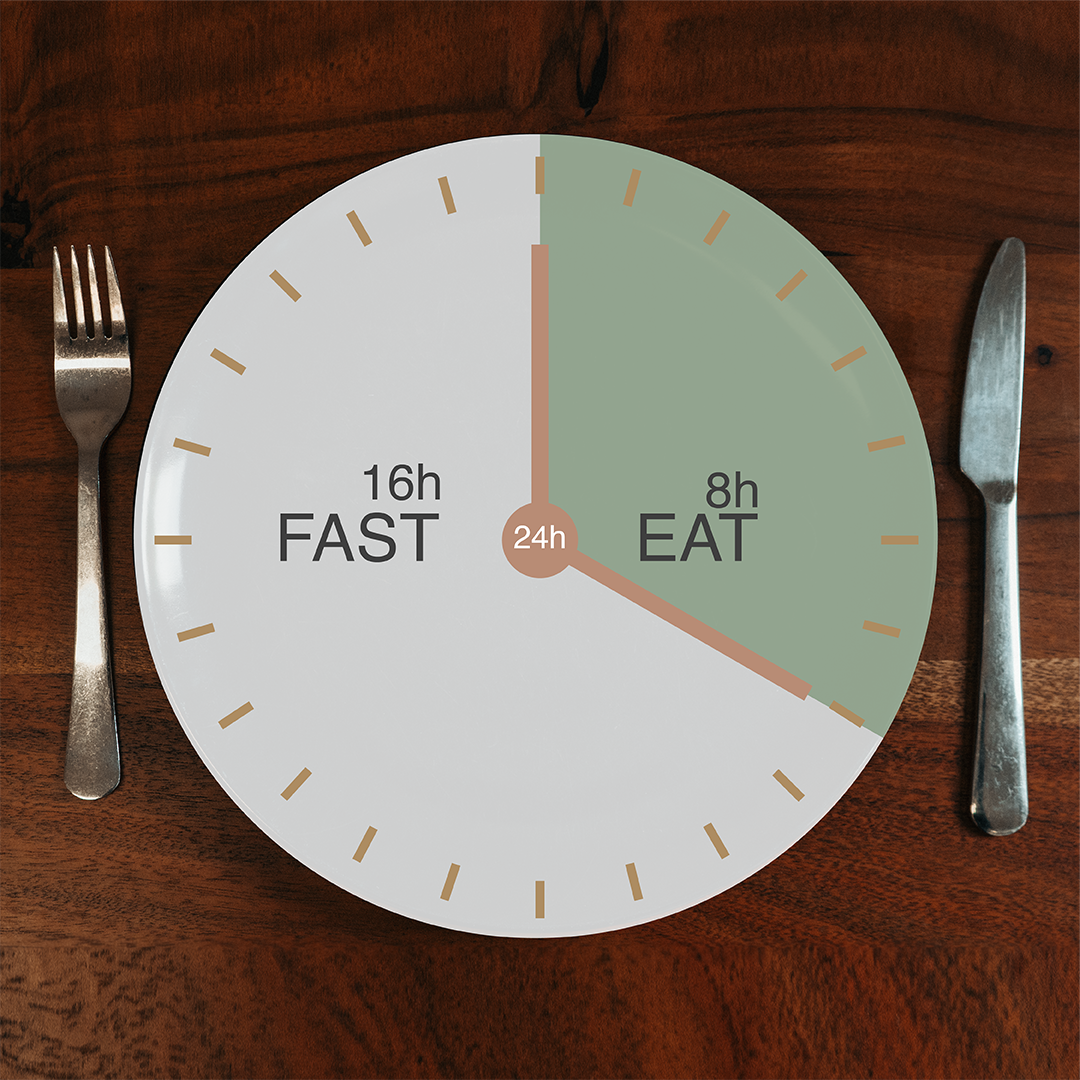Losing Weight with Intermittent Fasting
Latest Posts • September 02 2021
At the age of 35, my weight was always around 90 kilograms. But a photo with my then 1 year old daughter shocked me a little because she was basically sitting on my stomach although I was standing upright.
As described in my blog post My Journey to Health, I only began caring about health in my mid-thirties and I started reading a variety of books on this particular subject. The book Fit for Life by Harvey and Marilyn Diamond finally paved the way to my ideal weight. The most important message I took away from the book was the information about the circadian rhythms of the body. It’s basically about the time in which we absorb, digest and eliminate food. The bottom line is that we should consume all the food we eat in a day in the span of eight hours.
Intermittent Fasting – What to eat and WHEN to eat
Before I read about circadian rhythms, I had my early morning breakfast of coffee and jam or sausage roll around 7 to 8 in the morning. Throughout the day, I of course had other meals and snacks. I ate dinner between 7 and 8 p.m. each night and after that, I allowed myself a snack or two. To sum it up, I ate for about 16 hours and left my body without any food intake for only eight hours.
Then I began paying attention not only to WHAT I was eating, but also WHEN I was eating. In the morning I drank water and fruit juices. I only started eating real meals at around 12 o‘clock. The last meal of the day was at 7 p.m. Latest. So instead of spreading my meals out over a span of 16 hours, I now only ate during the eight-hour window recommended by Harvey and Marilyn Diamond.
It took me about a year to lose ten kilograms through the vegetarian diet I introduced at that time and also with the help of intermittent fasting – also known as interval fasting in Germany. I have successfully maintained this weight to this day. Another effect was that I lost fat and increasingly built up muscle with the help of physical activities.

Longevity and nutrition
However, regular fasting phases do not only help with weight reduction. Fasting has other positive effects. The Italian biologist and researcher Valter Longo has studied the topic of longevity and diet. In his book Longevity Diet, he also explains the connection between fasting and longevity. His important “magic bullet” for a long life is called eating less or, for certain periods of time, not eating at all. Longo explains that the cells regenerate during fasting phases. Age researchers assume that this regeneration process is as much a part of human life as sleeping. For earlier generations, it was a matter of necessity to go through phases without food. Today, we no longer know how to live without food, we have basically unlearned it. Longevity research therefore recommends regular fasting phases.
What experiences have you had with interval fasting? I look forward to a comment from you here or on Instagram.




Your article you clearly said about Intermittent fasting and it’s type which is based on cycles of fasting and eating. Surely it is a form of intermittent energy restriction. The post also says the fasting time schedule, what to eat, the nutrients of food intake that helps to maintain healthy fasting habit and helps to loose weight fast. Very helpful post.